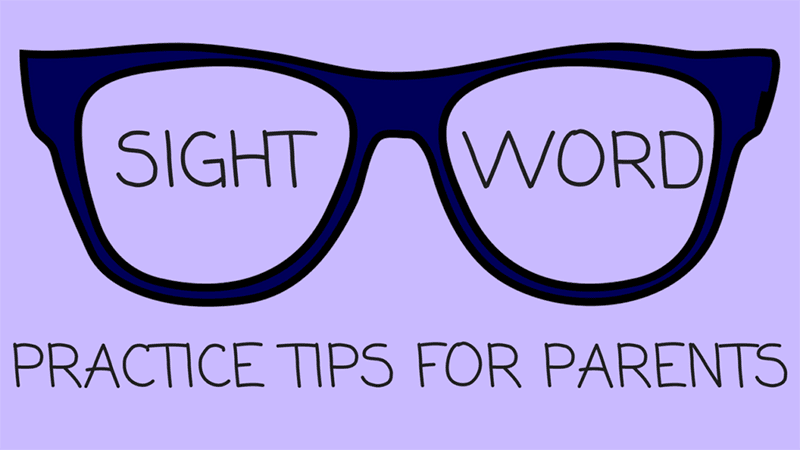Sight Word Practice Tips for Parents
Written by Sandie Barrie Blackley, Speech-Language Pathologist
Published on October 17, 2016
Lots of the top 100 most frequently used words in English have at least one irregular spelling element. These words are not only common words today but they are often words that have been around a long, long time. Words that are not perfectly phonetic (spelled the way they sound) are sometimes called “irregular” or “sight words”. Even so, most irregular words also have some regular spelling patterns. While the irregular element(s) must be learned “by heart”, the rest of the word can be sounded out as usual.
Ask your child to draw a heart around the letter(s) that make up the irregular spelling element. 
For example, in the word <said>, the <s> and the <d> can be sounded out but the <ai> vowel can not be. So, draw a heart around the <ai> and discuss that spelling element with your student. In the word <said> the “irregular” element is the vowel, and it sounds like a short <e>, but it is spelled <ai> !
To remember irregular spelling patterns it can help to create a mental image of the word. Use your mind’s whiteboard! Then connect that mental image to the word’s pronunciation and the printed word on the page.
Knowing a little about the word’s history can help, too. Many words that are phonetically irregular today are words that have been in English for centuries and that have changed over time.
 For example, the way we pronounce the vowel in the word <said> today is related to the way it was spelled before the year 900! Back then this word was spelled with an <e>: <seyen> or <seggen>. (I’m just saying…. the spelling of this word has changed over the centuries but the pronunciation of the vowel has not.)
For example, the way we pronounce the vowel in the word <said> today is related to the way it was spelled before the year 900! Back then this word was spelled with an <e>: <seyen> or <seggen>. (I’m just saying…. the spelling of this word has changed over the centuries but the pronunciation of the vowel has not.)
Dictionary.com is a good source of information about word history. It has a section on the origin in every word entry. Here is the Dictionary.com entry for <said>.
If you notice your child is having difficulty reading or remembering sight words it may you can screen them for dyslexia in 10-15 minutes for free here.
Improve Your Child’s Reading
Learn more about Lexercise today.
Schedule a FREE
15-minute consultation



